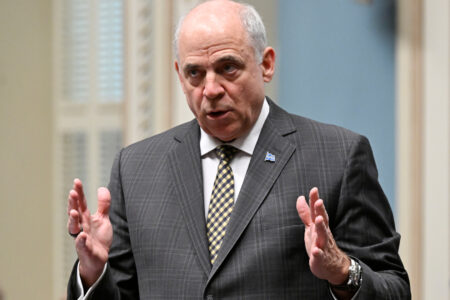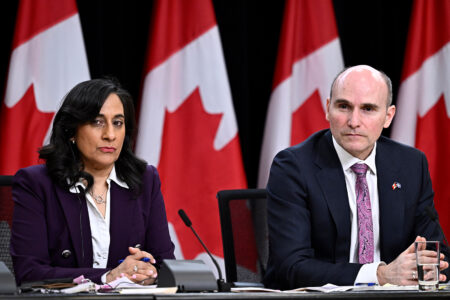
In July 2009, President Barack Obama’s proposed health care reforms were introduced into the US House of Representatives. The President urged his fellow Democrats to use the summer break to hold town hall meetings on the bill with their constituents. In the United States, this is a time-honoured way of engaging citizens in the policy process and, hopefully, building support for initiatives.
When the fledgling Tea Party movement heard about the plan, it saw something else: the chance to drive a stake through the heart of Obama’s health care reforms. The town halls were perfect cover for a full-scale ambush. Tea Partiers simply marched into the meetings, took control of the floor and shouted down their befuddled hosts — all in front of the TV cameras.
As a piece of partisan political manoeuvring, the tactics worked brilliantly. For the Democrats, it was a disaster, pure and simple. It nearly killed health care reform. Although Obama eventually succeeded in getting things back on track, it was only after he withdrew the bill, revised it and spent a wad of his rapidly diminishing political capital.
For those of us who make our living in the public policy arena, there is much to ponder in this tale. This kind of ultrapartisan politics appears to be reaching critical mass. Whether we look at committees in our own House of Commons, the hyperpartisan rhetoric of talk radio, the growing use of attack ads or Rob Ford’s assault on Toronto’s “gravy train,” civilized dialogue and debate seem to be disintegrating all around us. Why is this happening now?
A critical clue lies in troubling developments on a different policy front. So-called “wicked issues” are ones that are connected to other issues in all kinds of ways, creating layers of complexity, much like an onion skin. Examples include climate change, poverty reduction, terrorism and international financial storms. This kind of interconnectedness between issues is spreading like a virus. It is a problem for governments because they don’t have adequate tools or processes to deal with it. The search for solutions is urgently under way in the policy community. Oddly, however, there is almost no discussion of the connection between rising complexity and the declining civility in political debate, though such a connection seems clear.
On one hand, the public is frustrated by what it sees as a string of failed promises from government leaders to find solutions to issues like climate change. On the other hand, much of the Tea Party-type rhetoric plays precisely to this anger. It blames the failure on governments that have become elitist, wasteful and out of touch, and then harks back to a simpler time when honest folk were at the helm. This, in turn, makes the public even angrier, at the same time that it makes decision-makers more defensive, cautious and, ultimately, ineffective — and the cycle repeats.
A vicious circle seems to be forming, which, if the town halls are any indication, threatens to consume rational politics. We need to break free of it, and the first step is to recognize that complexity is a game changer. The old way of making policy was designed for a slower, simpler world. That world is now gone.
A vicious circle seems to be forming, which, if the town halls are any indication, threatens to consume rational politics. We need to break free of it, and the first step is to recognize that complexity is a game changer. The old way of making policy was designed for a slower, simpler world. That world is now gone. The way ahead begins by redesigning the policy process for a different kind of world.
Consider the issue of poverty. A leftleaning party might argue that poverty is the result of a lack of opportunities for education, while a right-leaning party might argue that overly generous social programs have created dependency. (Think of Margaret Thatcher.) Public debate is then supposed to test the ideas by letting the two sides fight it out to see who can win the most support. If the education side wins, resources may be channelled into creating new programs for schools. If the tough-love side wins, such programs may be dismantled or scaled back.
Policy-making is thus a competitive process that aims at producing winners and losers. The basic assumption is that, in a fair fight, most of the time the best idea will win. Decisions can then be carried out by public servants, operating under the leadership of a minister. In the past, this worked reasonably well. Because issues were less complex, they did not require high levels of cooperation with stakeholders, communities or the general public. Government was a relatively self-contained producer of programs and services, and citizens were relatively passive consumers of them. When it comes to complex issues like poverty, however, this model is increasingly unworkable for two reasons: complex issues don’t respond to simple solutions; and finding and implementing complex solutions requires collaboration, not competition.
To say that poverty is complex is to say that it has multiple causes. These may include a lack of education and/or dependency — the two are hardly mutually exclusive — but they may also include cultural or gender barriers, illness, lack of opportunity, technological change, economic shock, and a range of other things, including causes not yet recognized. Moreover, the particular cluster of causes will be different in different places. Thus the causes of homelessness in Winnipeg, which has a large Aboriginal population, are importantly different from those in Vancouver, where the problems are often related to drug-use.
Implementing solutions to such problems is not a competitive undertaking, but a collaborative one. The solutions, like the causes, are complex and must involve the community as a whole, not just government programs and policies. Thus families may need to support their members in new ways, businesses may need to change how they hire people, and governments may need to redesign programs. Everyone has a role to play.
Unless the community as a whole is engaged, however, it will feel no responsibility to help find and deliver the solutions. Government can’t simply declare an anti-poverty strategy and then expect citizens and stakeholders to comply. If it wants them to takes some ownership, it must give them a meaningful say in developing the strategy.
So the policy process has to become more collaborative. Unfortunately, we can’t expect strong leadership from governments here, at least not yet. Disasters like the US health care town halls have made both political and public service leaders very nervous about engaging the public in open dialogue. If change is needed, at this early stage much of the leadership must come from elsewhere in the policy community, but where?
So-called “think tanks” are one place to start looking. Governance is part of their core business. They develop and market new governance ideas, convene meetings and conferences to discuss them, and lunch with decision-makers. Many in these circles already agree that the policy process is in trouble and even have some ideas about how to make it more collaborative. On the other hand, in Canada think tanks make up a small, resource-challenged cluster of organizations within the policy community. What can they contribute to a mission like this?
There is a long-standing argument that Canadian think tanks should learn a lesson from their US counterparts. Even adjusting for population, the American community is much bigger, far better resourced and a lot more influential than ours. In this view, the main reason is that American think tanks have a business model that works. It has allowed the sector to prosper and grow in a way that Canada’s has not. At bottom, the model is based on an exchange of partisan support for financial support. South of the 49th parallel, think tanks are often far more integrated with the political party system. People move back and forth between these policy shops and government, depending on who’s in power. The Kennedy School at Harvard, for example, is a safe haven for progressives and tightly connected to the Democrats. By contrast, think tanks like the Heritage Foundation have strong Republican ties.
From the viewpoint of political parties, this linkage helps ensure that new ideas are being generated when a party is out of power and that it can draw on a stock of people with ideas when it wins power. From the viewpoint of the think tanks, the relationship not only ensures stable funding it gives them real clout in the political arena.
Some Canadian think tanks, such as the Fraser Institute and the Centre for Policy Alternatives, have taken a similar path, though with less movement in and out of government. As a result, they have found reasonably stable funding sources, often do good work and, arguably, have significant influence in the policy process.
This process is remarkable in a number of respects. It was convened by think tanks; it involves sector leaders in a comprehensive policy process without governments; and it is now seeking to bring governments into the discussions. Such an initiative would hardly have been conceivable 10 years ago.
However, these Canadian organizations are the exceptions to the rule. If the US system reflects the partisan model, Canada’s system leans decidedly to a nonpartisan one. Organizations such as the Institute of Public Administration of Canada, the Institute for Research on Public Policy or my own organization, the Public Policy Forum, have chosen to serve the policy community by occupying more neutral ground. Usually, this means either we try to provide balance in the views we present — this magazine is a good example — or we concentrate on governance and/or public service issues, which focus more on government processes and machinery.
The price for this neutrality, argue some, has been too high. Our sector is far smaller than the US, less politically engaged and, arguably, less influential. Should more Canadian think tanks move in the American direction?
Ten years ago, many of us found this argument persuasive and began to wonder about the wisdom of our own neutrality. Complexity reverses this tide. If transforming the policy process is now an urgent priority, it must be a nonpartisan initiative. The policy process is one of the most fundamental tools democracies have for making decisions. If we are going to change it, the whole policy community needs to be united around the goal. Similarly, if think tanks have an important role to play, they cannot be funded by partisan political interests. That would only rob them of the high ground they will need for this mission.
So what role should think tanks play in this mission and how will they fund it? First, let’s note that sponsorships and government contributions won’t do for a mission like this. The market already barely supports the tiny community that exists. Something this ambitious and long-term should pay its own way. Unfortunately, as we have seen, the painful truth is that nonpartisan think tanks have never had a clear and sustainable business model to support the work we do. Most live project to project by marketing their skills to governments or the private sector in a way that barely allows them to pursue their mission, while still paying the bills. What is the alternative? In fact, the project of renewing the policy process also creates an opportunity to turn this around and finally see real growth in our sector.
In October 2009, the Business Council of Manitoba, the Canada West Foundation and the International Institute for Sustainable Development convened a meeting in Winnipeg of leaders from key think tanks to discuss energy policy in Canada. Concerns were growing over the fragmented state of policy, especially given the opportunities emerging from the intersection of clean technology, infrastructure, climate change and investment in a green economy.
The group recognized that efforts to develop a national (as opposed to federal) strategy would raise a host of issues around fiscal, environmental, economic, industrial, trade and energy security policies, as well as jurisdictional questions. Nevertheless, in the end, they all agreed that growing complexity within the field calls for a comprehensive response. Policy shouldn’t be made piecemeal. This principle was christened the Winnipeg Consensus (see https://www.winnipegconsensus.org/).
In April 2010, three other organizations — the Canada School of Energy and the Environment at the University of Calgary, the National Roundtable on the Environment and the Economy, and the Public Policy Forum — convened a second meeting in Banff, Alberta, to assess the prospects for putting this principle into practice and developing a Canadian energy strategy. This time some 60 individuals were invited, including leaders from industry and other key stakeholder organizations.
Their discussions ranged over several themes, including the changing international energy picture, the role of energy conservation and Canada’s unique energy opportunities. Over two days of talks a consensus slowly emerged around the need for a Canadian clean energy strategy to secure Canada’s economic, energy and environmental future. The group recognized this was only one step, but they agreed to build on this foundation and to begin an active conversation with federal and provincial governments. A third meeting is now under discussion.
This process is remarkable in a number of respects. It was convened by think tanks; it involves sector leaders in a comprehensive policy process without governments; and it is now seeking to bring governments into the discussions. Such an initiative would hardly have been conceivable 10 years ago. Traditional think tanks were basically research organizations. They produced scholarly papers on issues of the day, then organized conferences and workshops to market their solutions to governments.
Complexity is changing all that. Not only is collaboration now a basic condition of successful policy-making but, as the Winnipeg Consensus shows, such a process can begin without government involvement or, alternatively, with government acting only as a participant. Indeed, this nongovernmental setting may often be the best place to start.
Energy is not the only policy field that needs a comprehensive approach to policy-making to respond to growing complexity. Many other sectors are in the same boat and, like energy, would benefit from an ongoing dialogue that might turn a collection of stakeholders into a cohesive policy network. This, in turn, would make a big contribution to transforming the policy process. By establishing orderly, ongoing dialogues to align interests, reach shared decisions and form plans of action, such processes would create the conditions, capacity and discipline to tackle complex issues and, ultimately, change how policy is made. In sum, an opportunity is emerging here for the right organizations. They could become builders and managers of these new policy networks. Let’s call such organizations “policy stewards.”
As the Winnipeg Consensus suggests, many Canadian think tanks are natural candidates for this role. Many are already conveners of various kinds of dialogue process and, as a result, have considerable process skills in areas such as process design and facilitation. Many also have long-standing relationships with leaders in a particular policy field and have earned their trust and confidence. They understand the different players’ concerns and interests and, given their nonpartisan history, are well positioned to serve as impartial umpires and facilitators for stakeholder discussions aimed at setting common goals and principles. In short, think tanks have already travelled a considerable distance down the road to becoming policy stewards. In the years to come, we can expect this journey to continue, leading hopefully to comprehensive policy processes in a range of key areas, such as innovation, health, the environment or homelessness.
As for the politicians, if those on the government side are presently skittish about dialogue processes, once the ball is rolling, they would be happy to join in.
Ultimately, governments need such a process at least as much as it needs them. For example, while a newly elected government can launch and lead an initiative, on say, innovation, the four-year electoral cycle doesn’t provide the time needed to build the networks and relationships for successful multi-stakeholder collaboration. These must be in place and ready to go. This, in turn, means there must be a trusted agent — a policy steward — that governments can turn to who is able to help mobilize the players around a decision by government to move forward.
As stewards, think tanks would be providing a valuable and specialized service. Providing this service effectively involves much more than calling a meeting. It is a long-term, labourintensive investment in building relationships. It requires endless phone calls, e-mails, social networks, travel, lunches, meetings, round tables, conferences, Web sites, research, drafts of documents and articles, and so on. In effect, the members of the network are the policy steward’s clients. As in any other client relationship, members of the network would therefore be expected to pay for these services in exchange for the benefits they receive. So, if there is a new business model here for think tanks, it involves a shift away from reliance on sponsorships and contributions and toward fee for service.
While the Winnipeg Consensus involves a long list of 10 think tanks, for most purposes, this would be unnecessary. A single organization would often be able to serve as the policy steward for a particular network. Networks would also vary in size, as would the number of staff needed to build and manage one. As there are lots of policy fields to service, there would be lots of work to go round, so this new role should lead to growth in the sector — perhaps very significant growth. Indeed, real growth in this kind of network building would be a key driver of the transformation of the policy process.
A final question: Would this turn think tanks into consultants? If these policy networks are to solve complex issues, they can’t be based on shared ideological views or interests. Like the issues, their composition must be diverse. Turning such a group into a cohesive policy network therefore will not be easy. A policy steward will have to challenge the members to be open, fair, reasonable and respectful with one another and to make real compromises and concessions. If the members do not respect and trust the steward, they will not listen. In effect, the members must see their steward as more than an adviser; he or she must be a leader. Earning this kind of trust requires more than intelligence, skills or experience. It requires a firm but realistic commitment to nonpartisanship, impartiality and the public interest. If the steward does not exemplify these values, he or she will lack the moral authority to lead the network or to challenge it to rise to a higher level of discussion and debate. These values thus are the gold standard of the profession. So, no, this would not turn think tanks into consultants — though it may challenge some consultants to see if they can turn themselves into policy stewards.
In closing, let’s return briefly to the question of the current state of political debate. If this article is correct, complexity is now a defining feature of our society and, by extension, of our policy environment. As a result, competition alone will not lead to real solutions. We also need collaboration. Ultrapartisan rhetoric gets traction by playing to citizens’ rising anger over the waste of resources and their frustration over government’s failure to find real solutions. The good news is that this same anger is a clear sign of growing public recognition that simplistic slogans and black-and-white solutions to complex problems are no solutions at all. In short, this kind of policy-making may be on its last legs. If so, a more appropriate form of policy debate — let’s call it dialogue — not only is needed, but would be welcomed by the public.
Photo: Shutterstock







